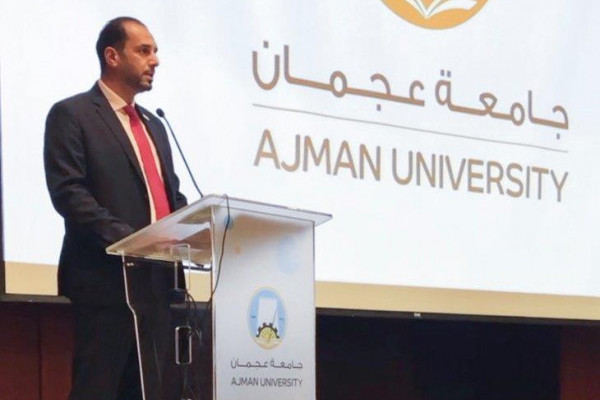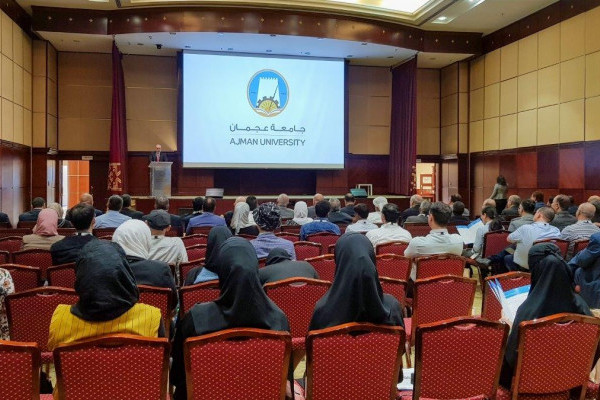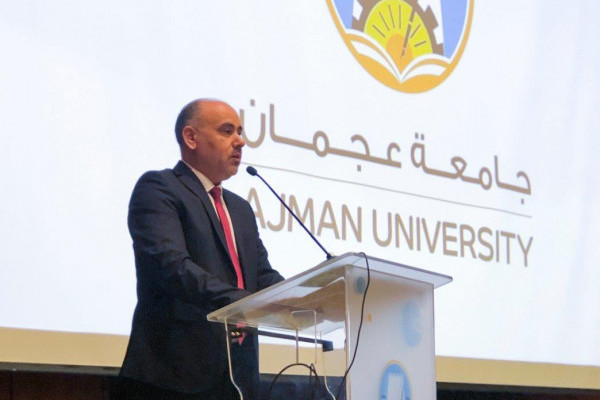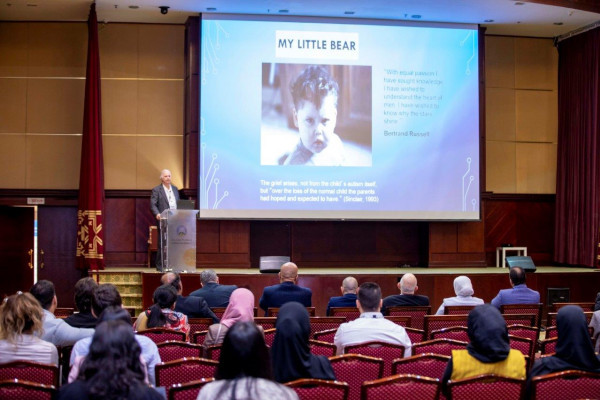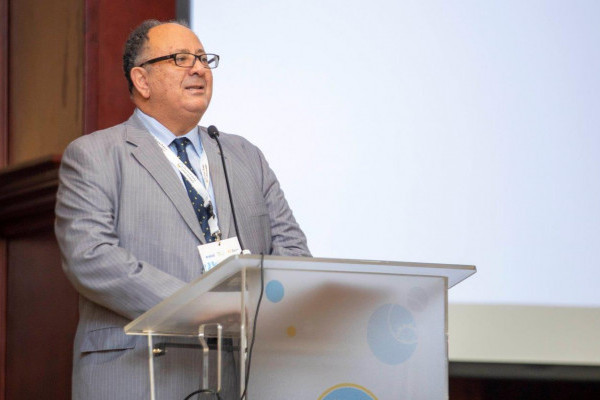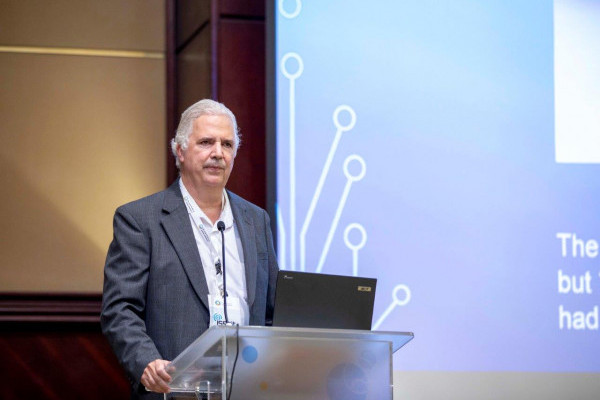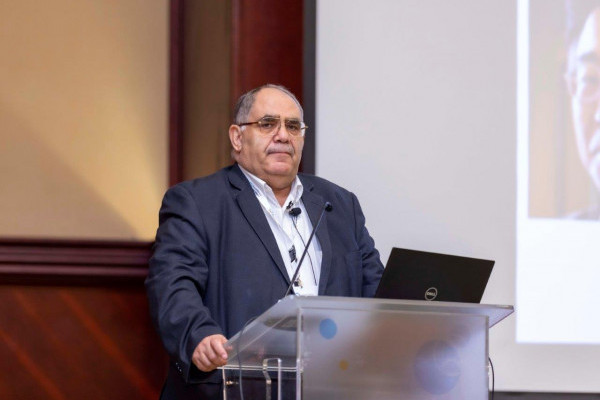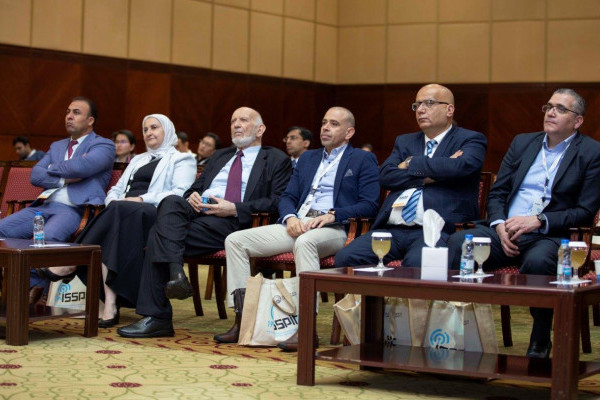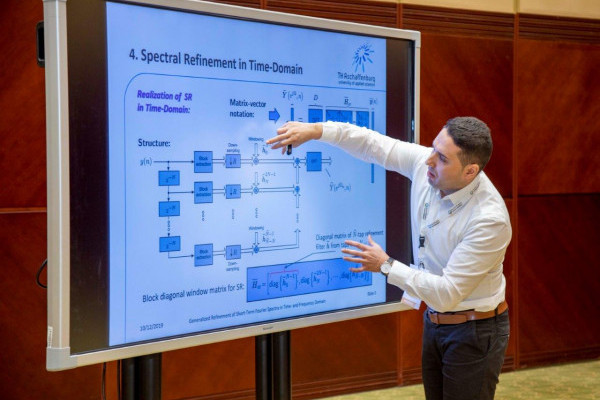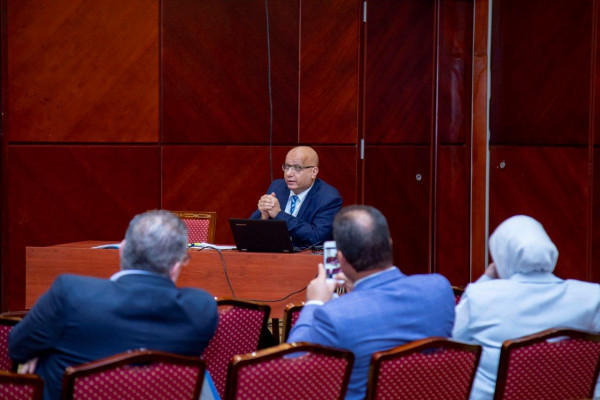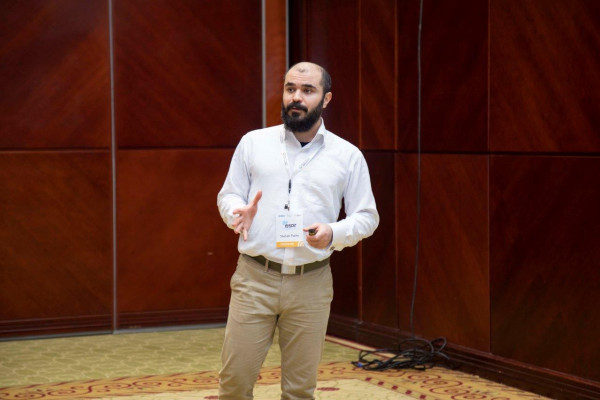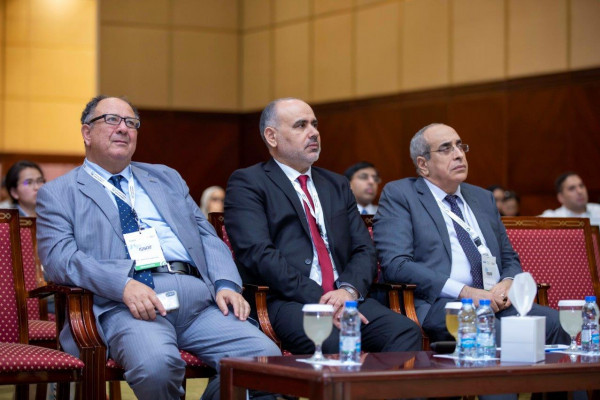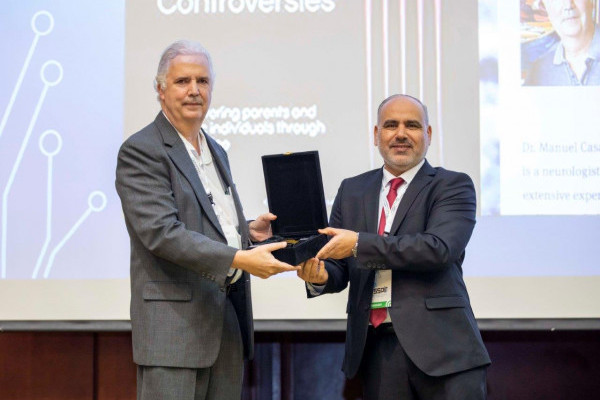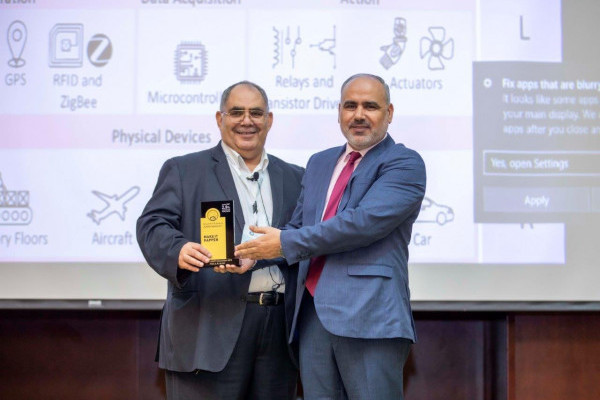AU Conference Features Latest Signal Processing and IT Applications
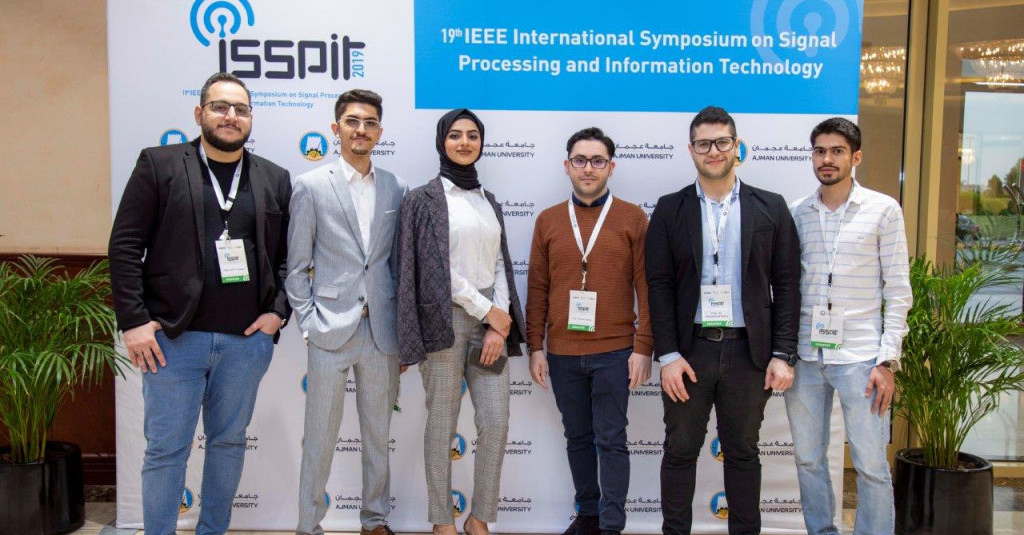
With over 100 presentations, the 19th IEEE International Symposium on Signal Processing and Information Technology kicked off in Ajman University (AU) with a focus on the latest applications in the field.
The global scientific gathering features four distinguished keynote speakers addressing the state-of-art technological advances in Signal Processing, Machine Learning, Internet of Things (IoT), and Biomedical Engineering.
The conference includes 18 technical sessions each is comprised of 5-6 scientific presentations related to the latest advances in signal processing and information technology. It will also feature two special sessions on “fractional dynamical systems and applications” and “Arabic natural language processing”, in addition to a poster competition for UAE undergraduate students’ research projects.
Dr. Karim Seghir, AU Chancellor, said the three-day congress, December 10-12, covers very interesting topics on the latest advances in signal processing, machine learning, Information technology and their applications.
“At Ajman University, research is a pillar of our strategic vision. That vision calls upon us to leverage our research strengths and community engagement.”
The premiere technical forum serves as a platform for researchers and practitioners from academia and industry to share cutting-edge developments in the field, he added.
“It is aimed to explore new signal processing and information technologies, and pave the floor for partnerships and joint research.”
Prof. Khaled Assaleh, Vice Chancellor for Academic Affairs of Ajman University said advances in signal processing, machine learning and IT are among the key factors behind the technological revolution we are living these days.
The ever-growing power of computers in terms of speed and storage capabilities made it possible to implement, in real time, more sophisticated solutions by signal processing algorithms he added.
“Signal processing is at the heart of our everyday life and fundamental scientific advances.”
A smartphone, is a prime example of signal processing operations that allow us to communicate, exchange or store multimedia he explained.
The health field benefits from a variety of bio-signal and information processing algorithms, under different modalities in problems as diverse as tracking and detecting patterns in electrocardiograms and encephalograms, localization of epileptic sources in the brain, echography, or magnetic-resonance imaging (MRI), he stated.
“The ever-growing deployment of sensors and actuators in the fields of energy and transportation manifest the need for exploiting and processing large amounts of collected data which puts signal processing and IT at the center of global issues such as smart grids and smart cities.”
